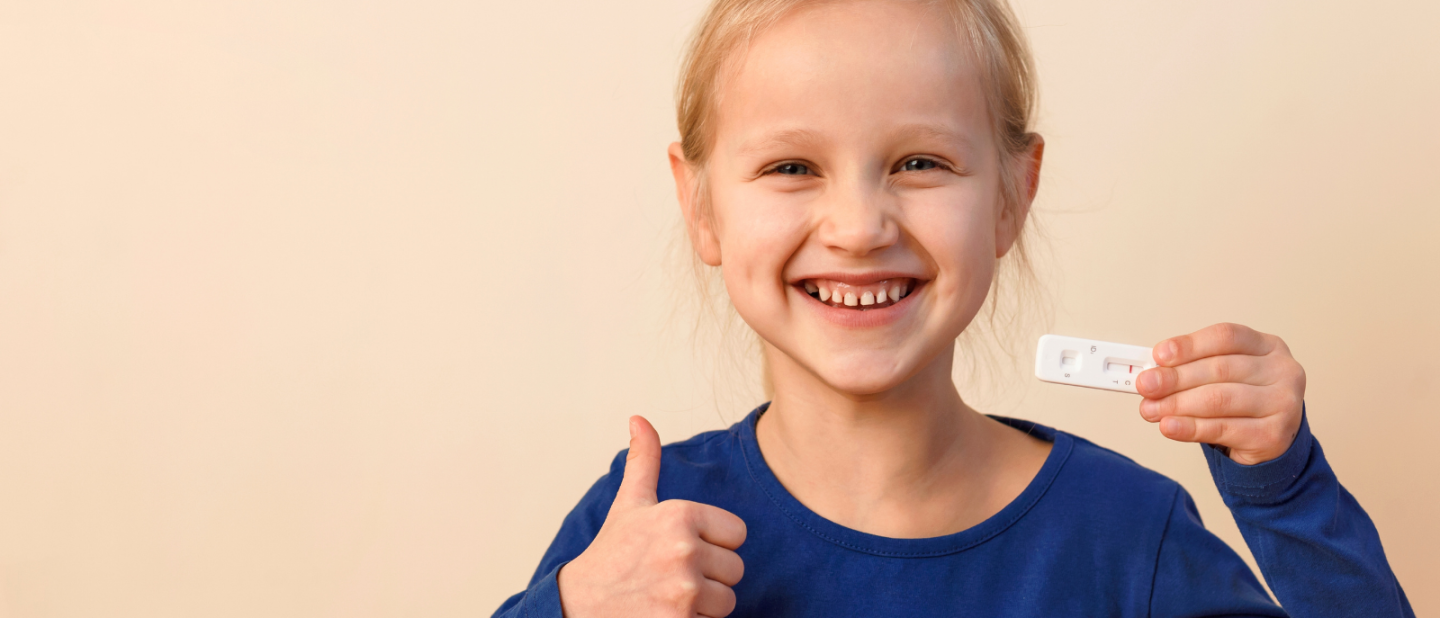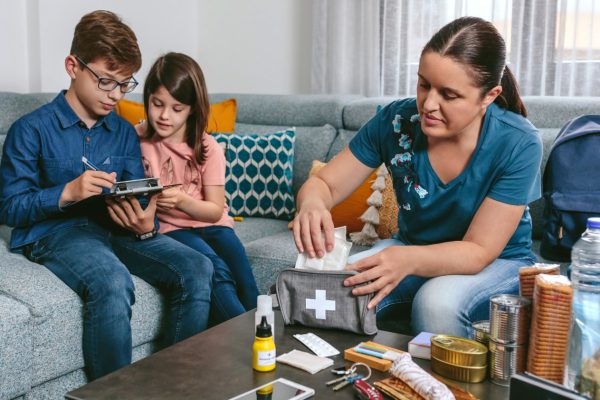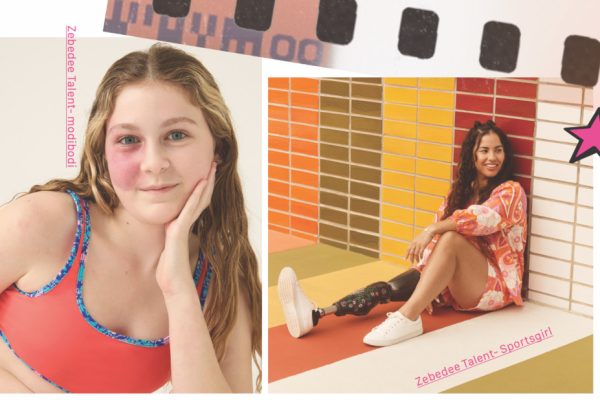
Helping your child cope with RATs
With students around Australia returning to the classroom, many families are wondering how they can keep their children attending in person while reducing the risk of catching or spreading COVID-19. In New South Wales and Victoria, regular rapid antigen tests (RATs) have been a crucial part of the states’ plan to keep schools open, with students in schools strongly recommended to test twice weekly in mainstream schools and five times a week in specialist schools.
For families with Autistic children, this plan presents challenges. Many Autistic children can find the physical sensory discomfort of receiving a test distressing. Children who already have a fear or have had previous negative experiences with medical procedures or a PCR test could find the addition of rapid testing in their home environment scary and stressful.
While a difficult option for many families, rapid testing is also an essential tool in keeping vulnerable children safe from COVID-19. So how can we make the experience less distressing for Autistic children?
Peak autism organisation Amaze has supported the autism community by providing information and resources on COVID-19. Here are some of their tips on preparing an Autistic child for a rapid test:
Pick the rapid test that is right for your child
Rapid antigen tests currently come in nasal swab or saliva options. If possible, choose a test that will cause your child the least discomfort. For many families, expecting their child to sit still while they swab their nose seems impossible, where as a saliva test is less invasive and removes any physical sensory overload from the testing. Children who find eating food soothing may find that a nasal swab is the preferred option as they can eat before the test without it affecting the results.
Empower your child with options
Giving your child some ownership of the process can help them feel more in control. Let them decide what time of day they can do the test and if they want to use distractions, such as stim toys or headphones, while they take the test.
Mum Jessica found her son Samuel was very anxious about the test. “He was very nervous about having to do one ahead of starting school. We talked about it, and I explained to him why kids are doing RATs, that it’s to keep him and others at school safe.” Jessica found that giving Samuel choices made him feel less anxious about the process. “I gave him a choice whether I would give him the test or whether he would do it himself with supervision. He chose to do it himself and said it tickled!”
Preparation is key
When it comes to exposing autistic children to new experiences, especially ones that can cause discomfort, preparation can help make the test runs smoothly. A parent modelling how the test works on themselves can show the child that the test isn’t scary or painful. Social scripts or videos showing the test being taken can guide both parents and children through the process, step by step.
Father of a school-aged child, Ryan, found that watching ENT surgeon Dr Eric Levi’s video showing the test being administered to his child helped prepare his own son, Alex, for a rapid test. “We were provided nasal tests by our school, which previously Alex found difficult and scary to use. Watching Dr Levi’s video together helped him understand what was going to happen and made the experience much easier.”
The video also helped Ryan, who found that previously he had been administering the test incorrectly. “Watching the video together helped us both. I hadn’t realised the best method of using the nasal swab and I probably accidentally made the process more stressful than it needed to be. Using the low and slow technique with the nasal swab, and not placing the swab too far into the nose made the test more comfortable for Alex.”
Autism Spectrum Australia (Aspect) have produced a social story and video below for more help and advice on using RATs.
For some families, rapid tests will still be difficult
While these tips can help, some families will still find it challenging to give their Autistic child regular rapid antigen tests. If you need support or advice, contact the national Autism Connect helpline on 1300 308 699 or visit the Amaze Coronavirus Hub for more tips and resources.





